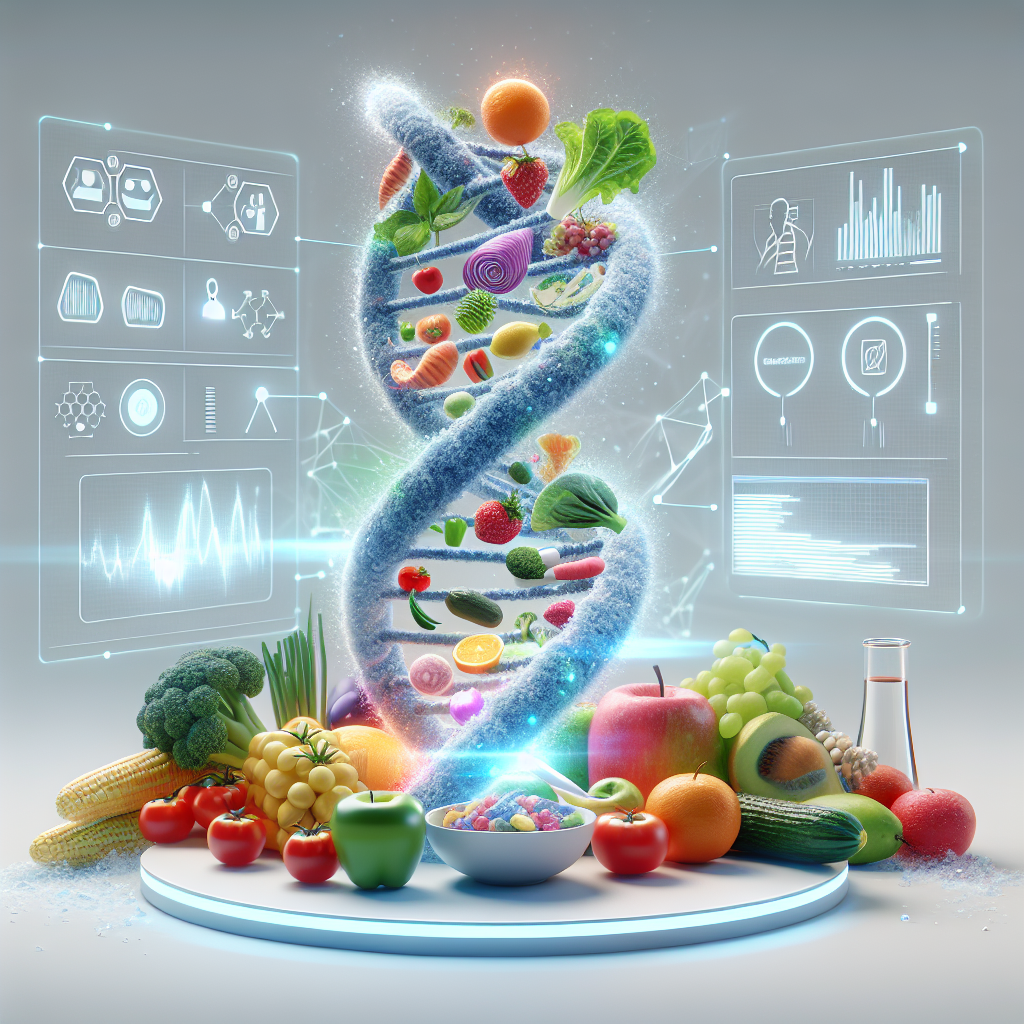Have you ever followed a popular diet plan to the letter, only to find your results disappointing compared to a friend who did the exact same thing? You’re not alone. While traditional dietary guidelines offer valuable general principles, they often miss a crucial reality: your body is uniquely yours. This growing recognition has sparked a revolution in how we approach nutrition, with tailored nutritional guidance emerging as the gold standard for health-conscious individuals.
Unlike one-size-fits-all diet plans that dominate bestseller lists and social media feeds, tailored nutritional guidance acknowledges that your dietary needs are as individual as your fingerprint. This personalized approach to eating has gained tremendous momentum in recent years, reflecting a broader shift in health consciousness. Today’s health-savvy consumers are no longer satisfied with generic recommendations; they want nutrition advice that speaks directly to their bodies’ specific requirements.
The rising popularity of tailored nutritional guidance isn’t just another health trend—it represents a fundamental evolution in our understanding of nutrition science. As research continues to reveal the complex interplay between food and our bodies, it’s becoming increasingly clear that personalization isn’t just preferable—it’s essential for optimal health outcomes.
Why One Size Doesn’t Fit All
When it comes to nutrition, individual differences matter more than most people realize. Your unique genetic makeup, metabolism, and lifestyle all combine to create a nutritional fingerprint unlike anyone else’s.
The human body is incredibly complex, with numerous factors influencing how we process and respond to different foods. Genetics play a significant role in determining how your body metabolizes nutrients. Some people naturally process carbohydrates efficiently, while others might struggle with blood sugar regulation despite eating identical meals. Genetic variations can affect everything from your resting metabolic rate to how effectively you break down fats or absorb specific vitamins.
Your metabolism is another crucial factor that varies dramatically between individuals. Even people of similar age, weight, and activity levels can have metabolic rates that differ by hundreds of calories daily. This variation means that following the same caloric guidelines as someone else might lead to weight gain for you but weight loss for them.
Lifestyle considerations further complicate the nutrition equation. A construction worker, a desk-bound professional, and a competitive athlete all have vastly different nutritional requirements based on their daily physical demands. Similarly, sleep patterns, stress levels, and work schedules all influence optimal eating patterns and nutritional needs.
Personal preferences and cultural backgrounds also significantly impact dietary success. Nutrition plans that ignore your food preferences or cultural eating patterns are likely to fail in the long run, regardless of their theoretical nutritional value. As one nutrition researcher aptly put it, ““The best diet is the one you can stick to”.”
Health conditions and goals represent yet another layer of individuality. Someone managing diabetes requires different nutritional strategies than someone working to reduce inflammation or increase muscle mass. These unique needs simply cannot be addressed through general population guidelines.
The Measurable Benefits of Going Personal
The evidence supporting personalized nutrition isn’t just anecdotal—it’s backed by robust scientific research showing measurable improvements across various health markers.
The shift toward tailored nutritional guidance isn’t just intuitive—it’s backed by compelling research. Studies consistently show that personalized approaches yield superior results compared to generic dietary recommendations.
A six-week pilot study using AI-powered tailored diets demonstrated significant improvements in gut microbiome diversity among participants. This finding is particularly noteworthy given the growing recognition of gut health as a cornerstone of overall wellness. By customizing nutritional intake to support individual microbiome profiles, participants experienced measurable improvements in digestive health markers.
For those managing chronic conditions, the benefits of personalization become even more pronounced. Research on cardiovascular disease risk factors shows that personalized nutrition interventions lead to more significant improvements in blood pressure, cholesterol levels, and inflammatory markers compared to standard dietary guidelines. One study participant noted, ““Following general heart-healthy guidelines helped somewhat, but when my nutritionist adjusted my plan based on my specific lipid panel, the improvement was dramatic”.”
Weight management outcomes also improve with tailored approaches. Generic calorie-restriction diets typically produce modest results that often reverse over time. In contrast, nutrition plans customized to individual metabolic profiles, food preferences, and lifestyle factors show better adherence rates and more sustainable outcomes. The psychological benefit of following a plan designed specifically for you shouldn’t be underestimated either—it creates a sense of ownership and commitment that generic plans rarely inspire.
Mental health benefits represent another compelling advantage of personalized nutrition. Mounting evidence suggests that dietary interventions tailored to individual biochemistry can support mental clarity, emotional regulation, and overall psychological wellness. For some individuals, customized nutrition plans that address specific nutrient deficiencies have helped reduce symptoms of anxiety and depression where standard approaches failed.
The Science Behind Your Unique Nutritional Needs
The emerging field of nutrigenomics—studying how genes affect nutrient processing and how nutrients affect gene expression—has revolutionized our understanding of personalized nutrition. Genetic testing can now identify variations that influence how your body responds to different dietary components.
For instance, genetic factors can determine whether you’re likely to experience inflammation after consuming certain fats, how efficiently you metabolize caffeine, or whether you have an increased risk of gluten sensitivity. One study participant discovered through genetic testing that her body struggled to convert plant-based omega-3s into their active form, explaining why standard plant-based diet recommendations weren’t improving her inflammatory markers.
Biomarkers provide another crucial dimension for tailoring nutrition. Blood tests can reveal vitamin and mineral levels, inflammatory markers, blood sugar regulation, and hormonal patterns—all of which offer valuable insights for customizing dietary recommendations. Rather than guessing which supplements might help, biomarker testing allows for precise identification of deficiencies and excesses.
Lifestyle analysis completes the personalization picture. Detailed assessment of physical activity patterns, sleep quality, stress levels, and daily routines allows nutritionists to develop eating plans that complement real-life schedules and demands. This practical approach acknowledges that even the most nutritionally perfect plan will fail if it doesn’t fit into your actual life.
Implementing Your Custom Nutrition Plan
Today’s technology makes customized nutrition more accessible than ever before, with options ranging from professional consultations to AI-powered platforms.
Fortunately, accessing tailored nutritional guidance has become increasingly practical through various approaches. Traditional consultations with registered dietitians or nutritionists remain a gold standard for personalization. These professionals combine scientific knowledge with clinical experience to develop individualized recommendations based on your health history, goals, and preferences.
Technology has expanded access to personalized nutrition through sophisticated dietary apps and platforms. Many of these tools collect detailed information about your health status, food preferences, and goals to generate customized meal plans and shopping lists. The best applications adapt their recommendations based on your feedback and progress over time.
Perhaps most exciting is the emergence of AI-driven algorithms specifically designed for nutrition personalization. These systems analyze vast datasets to identify patterns and make increasingly refined recommendations. As one researcher noted, ““Machine learning algorithms can process thousands of variables simultaneously, recognizing patterns that human nutritionists might miss”.”
Some cutting-edge approaches combine multiple data sources for comprehensive personalization. For example, systems that integrate genetic information, biomarker testing, microbiome analysis, and lifestyle factors can provide remarkably precise dietary guidance. One study found that an AI-based diet recommendation system validated on 3,000 virtual user profiles and 1,000 real profiles with 91,000 daily meal plans demonstrated exceptional accuracy in predicting beneficial food combinations for individuals.
The Future of Nutrition is Personal
As we look ahead, the trend toward personalization in nutrition will only accelerate. Advancements in wearable technology now allow for real-time monitoring of blood glucose responses to different foods, providing immediate feedback on how specific meals affect your body. This kind of data makes it possible to refine nutritional recommendations with unprecedented precision.
The integration of artificial intelligence with nutrition science represents a particularly promising frontier. Machine learning algorithms can calculate daily caloric requirements based on factors like age, BMI, and individual health goals, then generate meal plans optimized for both nutritional adequacy and personal preference. As these algorithms analyze more data, their recommendations become increasingly sophisticated and effective.
This evolution toward personalization aligns perfectly with HerbalsZen’s philosophy of integrating ancient wisdom with modern technology. The company’s EASTCHI AI exemplifies this approach by combining 2,000-year-old Eastern medical knowledge with cutting-edge artificial intelligence. While Western nutrition science tends to focus primarily on macronutrients and calories, Eastern traditions have long recognized that individual constitutional types respond differently to various foods.
EASTCHI AI analyzes users’ constitutional types through Five Element Theory, providing tailored nutritional guidance based on both modern nutritional science and time-tested Eastern medical principles. This dual approach acknowledges that truly effective nutrition must address both universal nutritional requirements and individual variations in how bodies process and respond to foods.
The platform’s emphasis on seasonal dietary guidance further reflects the sophisticated understanding that nutritional needs aren’t static—they evolve with changing seasons, life stages, and health conditions. By embracing the Eastern concept of food as medicine, EASTCHI AI delivers recommendations that support not just basic nutrition but overall wellbeing and balance.
Embracing Your Nutritional Uniqueness
The journey to optimal health begins with recognizing and honoring your body’s unique nutritional requirements—a perspective that combines ancient wisdom with cutting-edge science.
The evidence is clear: tailored nutritional guidance offers significant advantages over generic dietary recommendations. By acknowledging the complex interplay of genetics, metabolism, lifestyle, and personal preferences, customized nutrition plans deliver more effective, sustainable results.
As we continue to unravel the intricate relationships between food and individual health, the possibilities for personalization grow increasingly sophisticated. Whether you’re managing a chronic condition, optimizing athletic performance, or simply seeking to feel your best, nutrition tailored to your unique profile offers the most direct path to success.
Platforms like HerbalsZen with its EASTCHI AI represent the exciting convergence of ancient nutritional wisdom and cutting-edge technology. By combining the pattern-recognition strengths of Eastern medicine with the analytical power of artificial intelligence, these approaches offer a holistic perspective on personalized nutrition that honors both scientific precision and time-tested healing traditions.
Your body truly does crave a custom meal plan—not because it’s trendy, but because it’s biologically programmed for specific nutritional patterns that support optimal function. As you explore tailored nutritional guidance, you’re not just following the latest health trend; you’re acknowledging the fundamental truth that your nutritional needs are as unique as you are.




